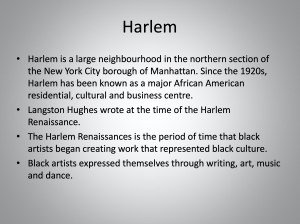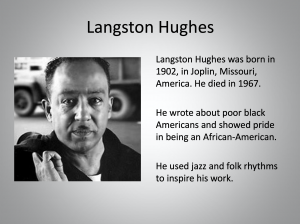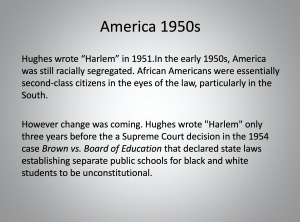Multi-generational Frames of Reference
or
Still dreaming of change
Life was getting busier for everyone. Lots of work and school distractions were putting a strain on family meeting times. Whereas before a session might have been the main event of the day, it was now something we all had to make the time for and commit to.
So I started the session with some reflections. Scope the collective past to bring us in to the collective moment. I asked the family if they thought we had become better at thinking together. There was a visible affirmation in eyes and nods and body language.
Okay – so how are we better?
Our answers are longer. So at the start you would have to ask questions to tease out more detail, but now we just do it.
There’s more discipline in waiting your turn (my Dad looks comically askance at my Mum…)
We’re listening more actively
How can you tell?
Because we’re building on what others say
I’ve noticed we’re all more confident to share but particularly our young folk. It’s been lovely to see that.
And confident to disagree.
Thanks everyone. That sounds like something you should be proud of.
So in preparation, I had told everyone the lesson was called ‘Dream deferred’ and to check the meaning of deferred. I also asked them to think about whether they had ever had a dream and what barriers there may be to accomplishing a dream.
Quite sensitive stuff.
And do teenagers want to share their dreams when their dreams may still be shimmering in the distance, fragile yet imaginable?
Have you ever had a dream?
The adults led the way.
So this takes me back to my teenage self, growing up on a rural inland island on the west coast of Norway. These days, the thin strip of fjord surrounding the island has been bridged and the island is accessible and escapable 24/7, but when I was young the connection to the mainland, and to civilisation, relied on a small ferryboat that docked up at 10pm every night.
It gave us a strong sense of security – it was a place where no one locked their doors, believing any rotten eggs would be stopped at the ferry. But it also added to the sense of stifling claustrophobia. The place felt very insular and cut-off in every sense.
While biding my time, I travelled in my dreams, to other times and other places. English was my favourite subject and England the object of my girlish dreams. The flickering flames of my naive passions were fed and stoked by tomes of Regency romantic novels. Sometimes I would make random and pricey long-distance calls to shops in England only to be able to practise my favourite foreign tongue. I got in real trouble. In between reading and dreaming, I vividly remember sitting at the end of a narrow, weather-beaten wooden pier, knowing that this was as far away and to the west I could physically get in the moment, but trusting that my time would come. Once I was old enough, I would cross the divide. I would become one of those who got away.
Stillness.
This from my sister in law who has married an Englishman, and lives in London. What made the poignancy of her dream all the more arresting was that she was speaking with such passion from a small flat in lockdown, in the midst of the hot city, with no garden or balcony. I thanked her for sharing such a moving and personal story.
So the barrier to this dream being realised was mainly age but also opportunity.
Would anyone else be happy to share a dream?
I have an odd story.
(my Dad)
When I was in the Upper Sixth at Holt Grammar School, we had a heck of a first football team. We got to the finals of the Merseyside Grammar Schools’ Cup and were supposed to play at Goodison Park (Everton’s home ground.) It turned out that the ground was closed at the time and we only got to use the training ground. We played the game – it was a close 2-2 draw and it was decided we would share the title. We all walked away knowing that we had something really special as a team but wouldn’t get to play together again, as we were going off to jobs and university. I often thought about those times and the closeness and skill of the team, but something happened to make me see it all differently.
After started at Uni in Manchester, I went back to school, it must have been for a prize-giving or something, and bumped into the old lab technician, Charlie Parker. A lovely man. He asked how I was, but then asked what I thought of the time I had been spotted by the talent scout. I had to tell him I had no idea what he was talking about. So it turns out that a talent scout from Everton had seen me play and, as it was in those days, gone straight to may Headmaster to suggest that I was signed up for the youth team. He had told the scout ‘Don’t touch that boy. He’s going to university. He’s going places.’
How do you feel about that Dad?
Even at the time, I don’t think I would have said any different. But it’s strange that for so many young footballers that would have been the ultimate dream and at the time, I wasn’t even told.
Now my Dad is an LFC fanatic. It’s like a religion. This was pre Bill Shankly days. Liverpool FC were still Second Division, but Everton a First Division side. So football was and is a huge part of his life. But it turns out his dream of a working class boy becoming a research scientist was bigger – and was realised.
On the back of this story, we talked about how other people’s view of you can be a barrier. This could easily have been painful memory. A sliding doors moment.
My brother summarised at this point that it seemed important to distinguish between the barriers to dreams that are painful or those that are just about plausibility. There are dreams of being an astronaut and playing for your favourite football club, but for most of us these don’t cause any pain. We know they won’t come true and we don’t really try to make them come true. There are so many barriers to achieving these dreams that we don’t really aim for them. They’re just fun to imagine.
So this could be really helpful for us moving forward – are the barriers to a dream causing pain or are they just a reality that we can accept?
Let’s read the text and think
- How does the poet feel about the dream being deferred’
What happens to a dream deferred?
Does it dry up
like a raisin in the sun?
Or fester like a sore—
And then run?
Does it stink like rotten meat?
Or crust and sugar over—
like a syrupy sweet?
Maybe it just sags
like a heavy load.
Or does it explode?
Let’s Think veterans will know this is the early social construction phase of the lesson, a space to build shared meanings. However I went through my own early cognitive conflict. My reading of the poet’s feelings has always been exclusively negative: the explosion in the finale is an angry outburst. The family, without much need of me now, took their thoughts in two considered directions. The raisin and the syrupy sweet could be positive images that are interspersed with the festering sore and stinking meat. And those strings of questions – the poet isn’t sure if being deferred will lead to sweetness or decay. Equally, some read the explosion as an angry outburst, but some thought this was an moment of escape, a metaphor for freedom. I asked if the final line could mean both destruction and freedom and the group agreed this could be the case. Like a revolution.
When asked what title they would devise for the poem, most were happy to use Dream Deferred but more positive possibilities like Dream Realised and Freedom were also contemplated.
Harlem
The poem is called Harlem
The title was revealed and background information about the district of Harlem, the Harlem Renaissance and the poet Langston Hughes was shared.



It was beautiful to listen to how the adults supported our younger folk through this shift in frame of reference. My Mum and Dad lived in California in the 60’s and talked about the Civil Rights riots that mirrored the Harlem riots in downtown LA, supported by the students in Berkeley. They took us back to that final line in the poem. It was a fearful time: there was anger and violence, but there was hope in the air that a country built on racism might begin to face up to its history and work for change.
- Does the title change your view of the poem?
A teenage voice piped up
We’ve been thinking about the poem as one person’s dream but now it’s about a group of people. It feels like it matters much more now.
Some adults mused that they had not thought before about how a poem’s meaning suddenly shifts when you know its social and political history. A quietness and a slowness of pace came upon the group. I did not ask for an explanation of this.
Same text: different frame
I then explained that we were going to experience the poem in a different context. The video we were about to watch was a Nike branding advertisement, released just before the Beijing Olympics in 2008. We talked a little about the difference between a branding advert compared to sales: my sister who worked in marketing coming in to her own with this concise definition ‘a brand is a compelling promise consistently delivered.’ So we thought we would watch the advert and try to tease out the ‘compelling promise’. I shared the star, Sonya Richards’ personal story of injury and struggle: that she was on the brink of not qualifying for the Olympics, then crossed the line with one final, explosive qualifying race.
You can watch the ad here
- Why might Nike have used Langston Hughes’ poem to promote their brand?
- Is it appropriate for Nike to use his poem to promote their brand?
True cognitive conflict ensued. Some did not like the advert at all: neither its style, its use of the poem or the way the poem was read. Our ten year old female Londoner liked the way that the ‘brand’ included all generations of Black American women.
A young girl can watch this and think ‘This could be me. I could do that too.’”
People began to re-read the poem.
Sonya’s run is nothing like the festering sore running in the poem. But we can see how her dream was drying up and sagging like a load.
The athletic explosion at the end becomes something that can only be positive whereas we saw a tension in the ending.
But if you notice those three generations of black women in the film, Nike might be trying to make the link between her struggle and their struggle.
Did they do any more than release the advert?
…adds my 15 year old.
It’s like those companies who buy their way into the London Pride March, but don’t do anything to support LGBTQ rights. Do they put their money where their mouth is?
We did not reach a consensus and I didn’t push for one. I think this is one of those questions that disturbs your thinking and opens you up and it’s best to stay in that disequilibrium.
- Does the poem still have resonance today?
The group did agree that the poem still had resonance – not just as a social and political text about a people and a movement, a dream still deferred in too many ways, but for anyone whose dreams have been restricted by the opportunities open to them or by how other see them.
What happens to a dream deferred?
Langston Hughes’ Harlem was a prism through which we explored each others’ dreams, moments from our past histories as well as the pride, pain and living struggle of Black history.
One week later George Floyd was murdered.
That Sunday we paused the lessons and spoke only of this.
End of an era
This will be the final Let’s Think in Lockdown blog.
We completed a total of 13 sessions together. That’s 14 people and a small sausage dog making the time to improve and expand their thinking through texts and through each other. Yes, we were in lockdown. Yes, I know we had nowhere else to go. But choosing to sit together in front of a screen for over an hour a week, focused intently on a text and each other’s thoughts brought us closer together in a way we never would have dreamed of.
I’ll leave you with my Mum.
Let’s Think family sessions have evoked distant memories and led me to explore the ideas rattling around in my head in lockdown.
Let’s Think is a powerful process, I have been enticed into reading extracts of texts from so many various sources and enjoyed and been rewarded by the exploration process. The vivid imaginings of the youngsters, the measured approaches of the students, the learned embellishments of the wise and good and the opportunity for us ‘wrinklies’ to still feel valued and able to contribute.
This has been such a rewarding exercise for all of us. We are learning that we need to listen to each other to expand our thinking. A valuable lesson anywhere.


